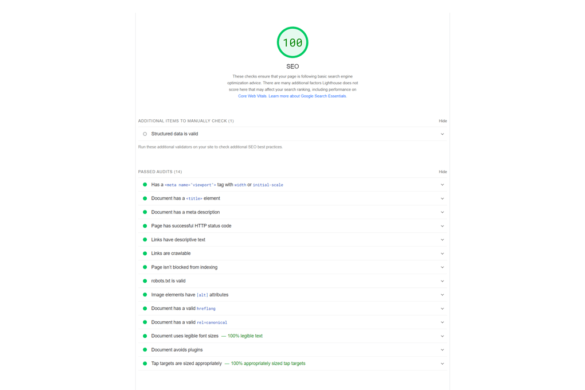Table of Contents
In the ever-changing world of SEO, backlinks are key to how a website ranks and how much authority it holds. This article will break down backlinks, looking at their different types, what’s new in SEO in 2024, and smart ways to get these digital thumbs-ups.
What Are Backlinks?
A backlink, or inbound link, happens when one website links to another. It’s like one site giving a thumbs-up to another. The more backlinks a website gets, the better it usually shows up in search engine results.
Why Are Backlinks Important?
Backlinks matter for SEO because:
- They help search engines find and list your content in search results.
- They assist users in exploring the web and finding content related to their interests.
- They help search engines figure out the quality and authority of sites and content.
Consider the internet as a sprawling library. Each webpage is like a book, and backlinks are the paths connecting these books on the shelves. They provide a roadmap for both search engines and users, guiding them to valuable content. Now, imagine you’ve just written a fantastic book (created a new website).
No one knows about it, and you haven’t put it on the library’s map. How do you expect readers to discover it?
They won’t!
However, if someone adds your book to the library’s map (creates a backlink to your site), it becomes visible. Search engines and readers can follow that map, find your book, and explore the captivating stories inside. This illustrates why backlinks are vital – without them, your book (or website) might remain undiscovered on the library’s vast shelves.
How are backlinks and SEO related?
When it comes to making your web pages stand out on Google, having good backlinks is key. Back in 2016, a Google insider spilled the beans that these links are among the top three things that boost your ranking.
In a nutshell, the more top-notch links related to your stuff that point to your site, the higher you’ll pop up when people search for your keywords. So, snagging these links is a sweet deal because it means more eyeballs on your site, more sales, better conversion rates—you name it.
But don’t get too link-happy by trying to get a link from every big-shot website out there. Google’s got this intricate system, and it cares just as much about how relevant the link is as where it’s coming from. So, even if your buddy’s killer marketing blog gives your pet shop a shout-out, it might not give your ranking a real boost.
Now, let’s talk about how to actually get these magical backlinks. It’s not as easy as just putting out great content and crossing your fingers. If you’re a fresh face in the business world or still working on bringing in the website traffic, you’ll need to put in some effort to get those links from other sites.
How to get backlinks to your website
Getting links to your website isn’t as easy as just putting out content or waiting for others to link to you. If you’re a new company or still working on growing your website traffic, you’ll have to put in some effort to get links from other sites.
Here are a few simple ways to get links to your site:
- Use Google Alerts: Keep an eye on mentions of your brand or business. If you see your company mentioned without a link, send a friendly email requesting one.
- Pitch Local News: Share recent achievements with your local newspaper. Local success stories are often interesting to them, and it’s a good opportunity to get a link.
- Contribute to Blogs: Find websites or blogs seeking contributions from industry experts. If you can write authoritatively on the topic, send them a pitch. You can include a link to your site in your author bio or within your contribution.
- Create Infographics: Design engaging infographics and pitch them to various websites. If they repost it, they’ll attribute it to your site, creating a valuable backlink.
- Link Others First: Include links to others’ content in your pages or blog posts. This may lead them to notice you and reciprocate with a link.
- Target Competitor Links: Use tools like Ahrefs to analyze your competitors’ backlink profiles. Reach out to high-quality sites that link to your competitors and pitch your content if it makes sense.
- Fix 404s: Offer your content as a solution to broken links on other sites. Identify 404s using tools like Screaming Frog and pitch your content to the site owner or writer.
Remember to stay updated with Google’s Webmaster Guidelines, as penalties can occur if you violate them. Google has penalized websites for “unnatural outbound link” profiles, emphasizing the importance of following their guidelines. Penalties, such as content de-indexing, can severely impact your organic traffic.
3 tactics you shouldn’t use to get backlinks
Link building might seem like a real chore, and it is. We all know that snagging some backlinks is crucial for SEO. Now, you might be tempted to take a shortcut, maybe buy some links or use a fancy backlink service with software to do the heavy lifting. But hold up – is that a smart move?
Nope. Here are three tactics you should steer clear of when it comes to backlinking:
- Buying backlinks
- Using backlink software
- Testing out a backlink generator
Sure, we’re all for working efficiently, but snagging those shortcuts isn’t what we mean by marketing automation. There are two big reasons why you should roll up your sleeves and do your link building manually:
Firstly, buying links is a big no-no according to Google’s Webmaster Guidelines. It’s a fast track to getting penalized and booted from search engine results.
Secondly, when you buy links, you’re playing roulette with quality. You might end up with links that do more harm than good, potentially leading to penalties for your site.
Remember, cheap backlinks are usually cheap for a reason. Going down the buying route won’t get you far, and it might even hurt your site.
Instead of taking the shortcut, take the high road. Invest time in creating a link building program with a dedicated team member or hire an experienced SEO firm. They can build quality links using top-notch content and outreach.
Trust us on this: There’s no magic trick to getting loads of high-quality links unless your content goes viral. If you buy backlinks, you’re essentially rolling the dice on the future of your business.
How to check backlinks
Wondering about your site’s backlinks and who’s linking to you? No need for rocket science – there are tools out there that make it a breeze. Google Search Console is a champ for this.
Here’s the lowdown:
- Log in to Google Search Console.
- Click “Links” on the left sidebar.
Now, look for “External links.” Right below that, you’ll spot the total count of your site’s backlinks.
Digging deeper, you can explore different link reports:
- “Top linked pages” reveals which pages on your site have the most links.
- “Top link sites” spills the beans on the sites that shower you with backlinks.
- “Top linking text” shows the common text used when linking to your site.
Clicking around these reports gives you more juicy details, like the specific pages on your site linked by certain sites.
Don’t want to limit yourself to your own site? No worries. Third-party tools like Ahrefs, SEMrush, or Moz’s Link Explorer have your back. Just pop in a domain or URL, and voila – a detailed backlink report is served.
How to link from your website to another site
If you want to link to another website, the easiest way is to use your website’s CMS, which is basically where you handle all your web content like pages, images, text, and stuff you sell if you’re running an online store.
Adding a link with your CMS is a breeze:
- Edit the page where you want the link.
- Type the text you want to link, then highlight it.
- Look for a button that looks like a link (kinda like a metal link).
- Click it, and a window pops up.
- Paste the URL of the site or page you want to link, then click “OK.”
- Save the page, and boom, visitors can click the links.
If you’re not using a CMS, you can still link using HTML. It’s pretty easy. For instance, if you want a link to our homepage, the HTML would look like this:
<a href="http://www.steveayo.com">this link</a>
And there are some cool things you can do with HTML links that a CMS might do for you. Like, if you want a link to open in a new tab, you add a bit of code like this:
<a href="http://www.steveayo.com" target="_blank">this link</a>
That “blank target” thing makes it open in a new window or tab. You can also jazz up your links with titles and descriptions using HTML. If you want to dive deeper, this article from W3 Schools is pretty handy.
FAQs
Are all backlinks created equal?
No, the quality and relevance of backlinks matter more than sheer quantity. Focus on earning links from authoritative and contextually relevant sources.
Is guest blogging still an effective way to earn backlinks?
Yes, when done strategically on reputable sites in your niche, guest blogging can be a powerful method for acquiring quality backlinks.
Are there risks associated with self-created backlinks?
Certainly, there are inherent risks linked to the creation of self-generated backlinks. While the concept of having control over your backlink strategy might seem appealing, it’s crucial to navigate this territory with caution.
Quality Concerns: Self-created backlinks often run the risk of being low in quality. If these links come from irrelevant or spammy sources, search engines might interpret them as manipulative attempts to boost rankings, leading to potential penalties.
Search Engine Penalties: Search engines, especially Google, employ sophisticated algorithms that can detect unnatural link-building patterns. If they perceive your self-created backlinks as a violation of their guidelines, your website may face penalties, resulting in a drop in rankings or even removal from search results.
Reputation Damage: Associating with dubious websites or engaging in practices like link farming for self-created backlinks can harm your site’s reputation. Users may lose trust in your content, affecting overall credibility.
Algorithmic Changes: Search engine algorithms are continually evolving. What may seem like a permissible strategy today might become a red flag in the future. Keeping up with algorithmic changes is crucial to avoid inadvertently falling afoul of new guidelines.
Competitive Disadvantage: If competitors employ ethical and high-quality link-building strategies, they may gain a competitive edge. In contrast, relying on self-created backlinks with questionable quality can put you at a disadvantage in the digital landscape.
Difficulty in Removal: Once self-created backlinks are out in the digital space, removing them can be challenging. If you later realize that certain links are harming your SEO, the process of disavowing or removing them can be time-consuming and may not guarantee a swift recovery.
Violation of Webmaster Guidelines: Search engines provide webmaster guidelines that outline best practices for website owners. Violating these guidelines with aggressive self-created backlink strategies can lead to penalties and a compromised online presence.







Add your first comment to this post